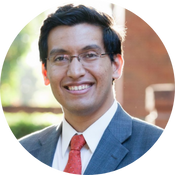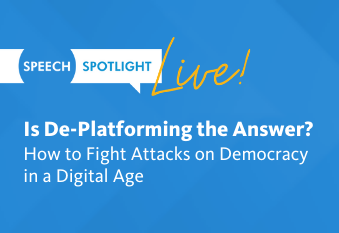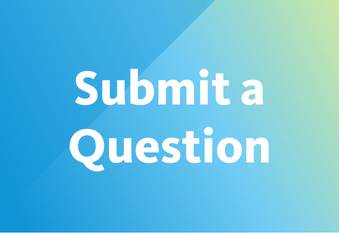Ask the Experts
Online Speech and Democracy
Is online speech helping or hindering democracy? And what role can institutions including higher education play in fostering an online environment that encourages respectful and productive discourse?
 Ernesto Falcon, Senior Legislative Counsel, Electronic Frontier Foundation
Ernesto Falcon, Senior Legislative Counsel, Electronic Frontier Foundation
The most powerful impact of the internet has been its capacity to distribute knowledge and culture at virtually no costs to the speaker. This has dramatically enhanced speech, which in turn has empowered democracy by enabling even the smallest voice to have an impact on our political discourse. Many of the major debates we have today stem from individuals who previously would have absolutely no means of communicating to the public. In other words, online speech remains vital to a 21st century democracy.
In the era of mass media that preceded social media, only those in positions of power would have a voice to reach the public. These elite few traditionally came from the same backgrounds in education, wealth, and were often white. The internet democratized access to the public by giving every person this power. The distribution of power though has also enabled speakers of disfavored and unpopular content to share their ideas at scale. Our initial instincts reach for censorship of these speakers on the misunderstanding that suppressing ideas will force positive outcomes. In reality, democracy is built on openly confronting contradictory ideas in order for society to advance together.
Institutions, such as higher education, must foster an understanding of the value and importance of online speech including disfavored and unpopular speech. Often past disfavored speech becomes the majority opinion through debate. Sanitization of internet speech will only prevent this critical process, which in turn only serves to make us ignorant of our fellow citizens.
 Shane Tews, Nonresident Senior Fellow, American Enterprise Institute
Shane Tews, Nonresident Senior Fellow, American Enterprise Institute
In a society that values freedom of speech, we should recognize the need for individuals to take responsibility for their actions when using websites or social media to voice a point of view. Academic institutions should help teach and foster healthy online discussions in a responsible atmosphere with respect for the participants.
Today’s policy and legal discussions focus on whether to take down or leave up content but not on individual responsibility for social media or website posts. Suppose that our government chooses a path that limits immunity for the information posted on a public site by an individual or a third party. The impact of this decision could result in more, not less, content moderation. This path would have a tremendous impact on freedom of expression.
Humans, not technology, create the discourse, and we should bring individual accountability into the public discussion. We should applaud companies that take a proactive approach to trust and safety when it comes to content moderation. While the current law also covers companies that choose not to edit consumer content, the customers must understand that these postings are the responsibility of the individual, not the website or platform operator.
 Nicol Turner Lee, Senior Fellow, Governance Studies; Director, Center for Technology Innovation, Brookings Institution
Nicol Turner Lee, Senior Fellow, Governance Studies; Director, Center for Technology Innovation, Brookings Institution
When questioning if online speech helps or hinders democracy, it is imperative that we consider populations who are most limited in free speech. Historically disadvantaged groups have traditionally been restrained and surveilled in how they talk about their lived experiences and related resistance.
While online platforms have fostered activism among Black, Hispanic, and LGBTQ+ users at higher rates than white users, these same platforms provide the same allowances to other groups, including white supremacists and misogynists, which enable racial and gender violence. A 2021 Center for Democracy and Technology study found that 2020 Congressional candidates who were women of color were twice as likely as other candidates to be targeted by mis/disinformation and were five times more likely to be targeted with tweets relating to their racial and gender identities. Furthermore, the mass scales of misinformation and disinformation on these platforms target marginalized communities, resulting in the erosion of civil and human rights.
Institutions of higher education can combat the ambiguous, and oftentimes polarized effects of online speech by raising awareness around media literacy, and the technical operatives that promote, filter, and moderate content differently. Young people, and even those starting in pre-school, should be taught about the opportunities and perils of online social discourse to promote healthier exchanges between individuals and communities. Without a deliberate plan of action, and transparency around how online speech impacts democracy, some voices and communities will continue to be discarded over these more normalized platforms.
 Chris Wood, Executive Director & Co-Founder, LGBT Tech
Chris Wood, Executive Director & Co-Founder, LGBT Tech
The debate around the impact of online speech on democracy has never been more charged or contentious. The propagation of factually inaccurate or misleading information and the explosion of online echo chambers that simply reflect one viewpoint back to its users has had a demonstrably negative impact on the protection of democratic ideals in the United States and abroad. Online spaces can feel less personal, even anonymous, empowering an individual to espouse views they wouldn’t otherwise say to someone face-to-face. This can create a space for bullying, hate speech, misinformation, and other damaging discourse. By no longer engaging in dialogue with opposing viewpoints and thus not having one’s beliefs challenged, online spaces can foster isolation and groupthink that is detrimental to democratic ideals.
However, online speech has also provided a voice for marginalized communities, such as the LGBTQ+ community that were voiceless before. Online forums have allowed these communities to amplify their causes and ideas as well as gain visibility, increase community, reduce isolation and gain legal protections. Education on the basic tenets of democracy as well as critical thinking about the information we consume online is crucial to fostering democratic ideals online. Our primary and secondary education institutions must teach the basic ideals of democracy starting at an early age as well as how to critically assess information sources. By the time an individual reaches higher education, these institutions should continue building on these foundations by teaching and encouraging productive and respectful discourse and critical thinking. These tools will allow online speech to serve the purposes of amplifying all voices and encouraging civil discourse.


